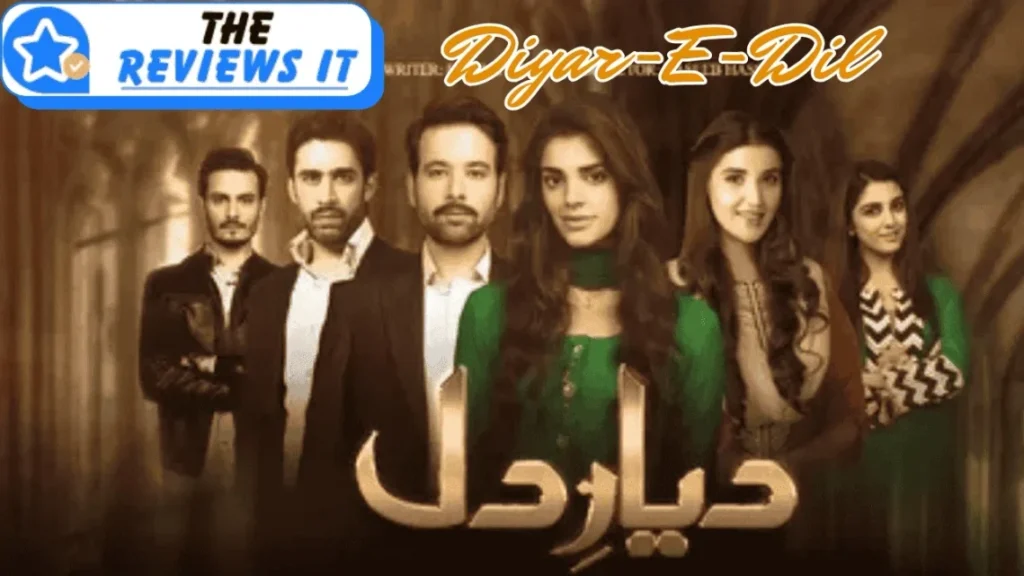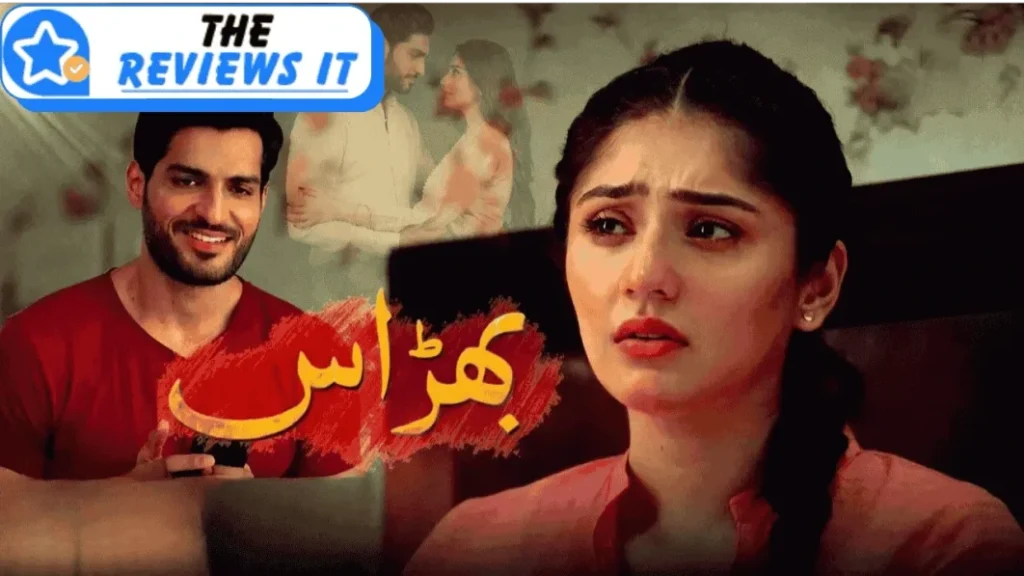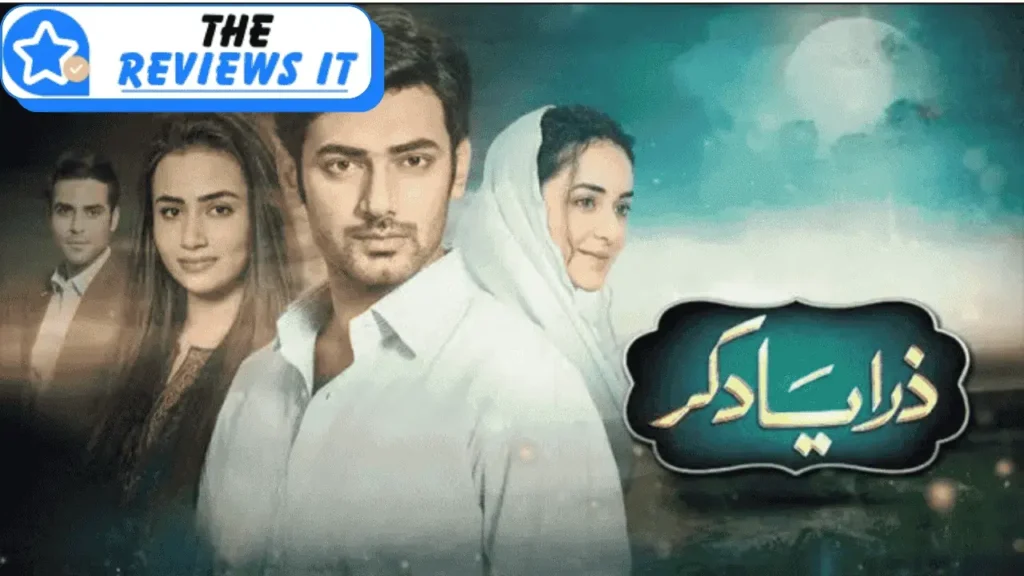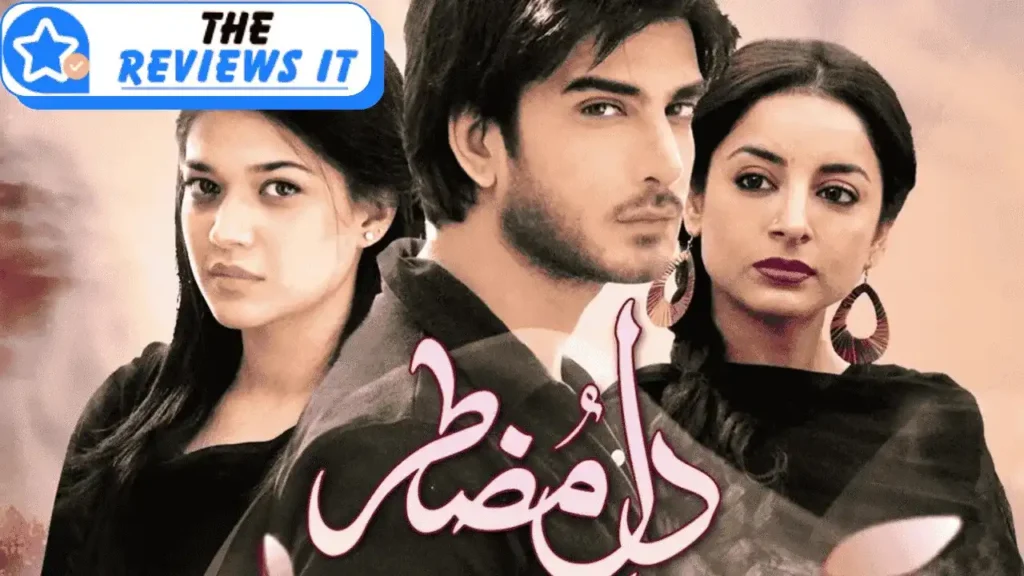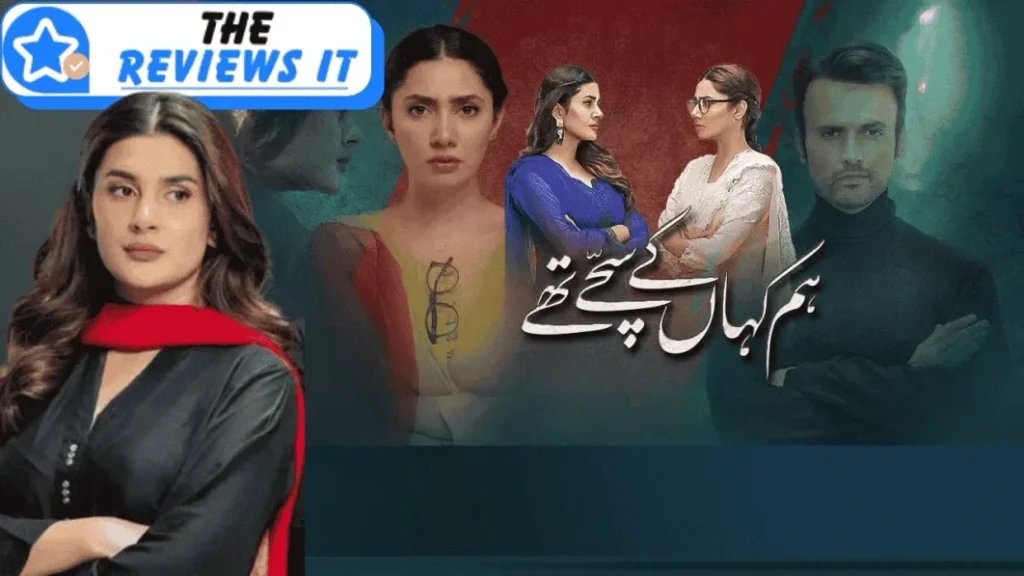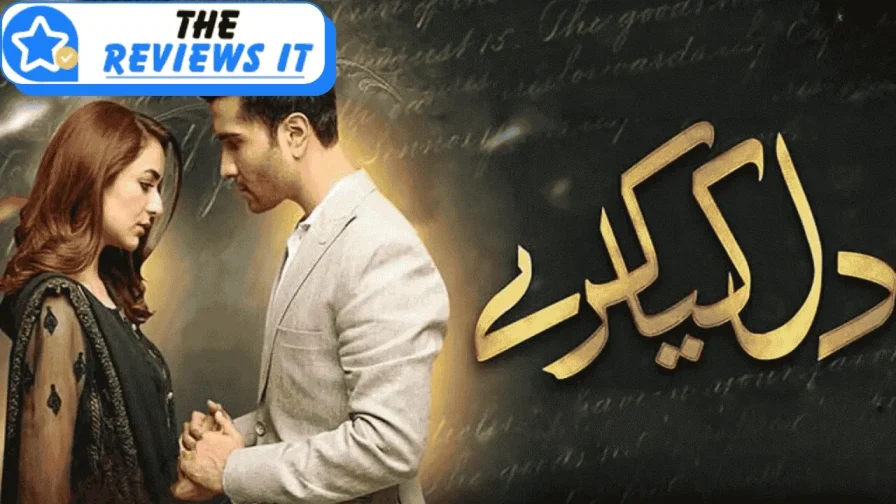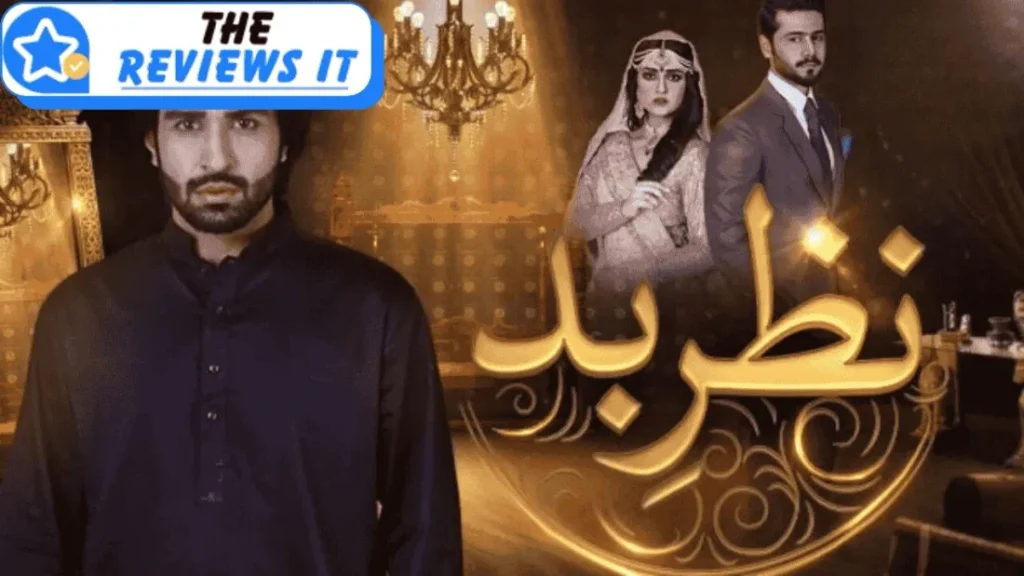In this Diyar-E-Dil Drama Review, we explore the captivating story of a family torn apart by misunderstandings and reunited by love and loyalty. Released in 2015 on Hum TV, Diyar-e-Dil quickly became a favorite among Pakistani audiences for its deep emotional appeal and complex family dynamics. The series stars Abid Ali as Agha Jaan, the family patriarch, alongside a talented cast including Osman Khalid Butt, Maya Ali, Meekal Zulfiqar, Ali Rehman Khan, Sanam Saeed, and Hareem Farooq.
What made Diyar-e-Dil so popular was not only its beautiful portrayal of relationships but also its breathtaking settings in Skardu, Gilgit-Baltistan, and Karachi. Written by Farhat Ishtiaq and directed by Haseeb Hassan, the drama’s themes of love, sacrifice, and redemption struck a chord with viewers, making it a memorable story worth revisiting.

Plot Overview: A Tale of Generational Conflicts and Reconciliation
In Diyar E Dil, the storyline unfolds around the family of Agha Jaan, a traditional yet loving patriarch, who deeply values family loyalty and respect. At the heart of the drama is the strained relationship between Agha Jaan’s sons, Behroze and Suhaib, whose differing life choices lead to painful family conflicts and separation. When Behroze breaks off his arranged engagement to pursue his love for Ruhina, it creates a rift between him and his father, leaving Suhaib to carry the burden of holding the family together.
Years later, destiny brings their children, Wali (Suhaib’s son) and Faarah (Behroze’s daughter), into the family saga, where they are reluctantly bound to marry for the sake of family unity. Wali and Faarah’s initial resentment gradually turns into understanding and love as they navigate their family’s complex history. Through their journey, the themes of forgiveness, healing, and redemption emerge as they attempt to mend their family ties.
Diyar E Dil masterfully captures the essence of generational conflicts, exploring how love and commitment can bridge deep-rooted misunderstandings. The story beautifully illustrates that, despite differences, family bonds and forgiveness can pave the way for reconciliation, even after years of separation.
Main Characters and Performances
Diyar-e-Dil boasts a rich ensemble cast, with each actor bringing depth and realism to their character, making the family drama unforgettable. Here are some of the key characters who left a lasting impression:
- Agha Jaan (Abid Ali): As the family patriarch, Abid Ali’s portrayal of Agha Jaan is powerful and moving. His character embodies authority, tradition, and a profound sense of responsibility for his family. Ali’s nuanced performance, full of wisdom and warmth, shows the deep inner conflict he faces when dealing with his son Behroze’s rebellion and the consequent family rift. Abid Ali’s performance left a lasting legacy, especially in how he expressed Agha Jaan’s journey from anger to forgiveness.
- Wali Suhaib Khan (Osman Khalid Butt): Wali, the son of Suhaib and Agha Jaan’s beloved grandson, is played brilliantly by Osman Khalid Butt. Wali is dutiful, mature beyond his years, and deeply loyal to his family, particularly his grandfather. Butt’s portrayal of Wali’s inner strength and his gentle approach to softening Faarah’s defenses was heartfelt and natural, giving the character an unforgettable charm. His strong, quiet presence made him a standout, and his chemistry with Maya Ali added a unique spark to the show.
- Faarah Wali Khan (Maya Ali): Maya Ali’s portrayal of Faarah, the daughter of Behroze, was equally powerful and relatable. Faarah begins as a somewhat headstrong character, often torn between loyalty to her mother and her family obligations. Ali’s performance shines as Faarah’s character evolves from resentment toward her forced marriage with Wali to a deeper understanding of family ties. Maya Ali’s emotional range and ability to depict Faarah’s growth made her character captivating and memorable.
- Behroze Bakhtiyar Khan (Meekal Zulfiqar) and Suhaib Bakhtiyar Khan (Ali Rehman Khan): Behroze and Suhaib, Agha Jaan’s sons, represent the two opposing choices that shape the family’s future. Meekal Zulfiqar plays Behroze, whose rebellious decision to marry for love leads to deep family divisions, while Ali Rehman Khan’s role as Suhaib, the dutiful brother who sacrifices his own happiness for the family, is equally commendable. Their portrayals bring a sense of authenticity and complexity to the sibling dynamic.
Together, these standout performances not only carried the story forward but also showcased the emotional weight of family loyalty, love, and reconciliation.
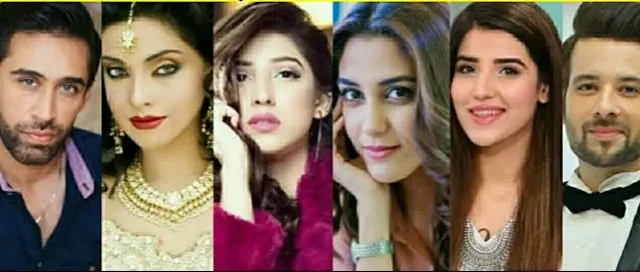
Cast Names and Character
| Actor | Characters |
|---|---|
| Abid Ali | Agha Jan |
| Osman Khalid Butt | Wali Suhaib Khan |
| Maya Ali | Faarah Wali Khan |
| Mikaal Zulfiqar | Behroze Bakhtiyar Khan |
| Ali Rehman Khan | Suhaib Bakhtiyar Khan |
| Sanam Saeed | Ruhina Behroze Khan |
| Hareem Farooq | Arjumand Suhaib Khan |
| Behroze Sabzwari | Tajamul Arsalan |
| Rasheed Naz | Bedar Khan |
| Eshita Syed | Laila Feroze Khan |
| Mariyam Nafees | Zarminey Suhaib Khan |
| Tara Mahmood | Zuhra Tajamul |
| Azra Mansoor | Yasmeen Beddar Khan |
| Fariya Hassan | Hafsa |
| Mariyam Khalif | – |
| Haseeb Hassan | Director |
Themes and Messages: Exploring Family Values and Forgiveness
At its heart, Diyar-e-Dil is a profound exploration of family values, love, and forgiveness. The drama beautifully intertwines the clash between tradition and modernity, generational conflicts, and the power of reconciliation, resonating with audiences who connect to its universal themes.
- Family Honor and Loyalty: One of the core themes in Diyar-e-Dil is family honor and the importance of loyalty. Agha Jaan, the family patriarch, values family traditions and unity above all else, and his strong moral code is central to the story. However, when his son Behroze goes against family expectations, the resulting rift shows the impact of breaking with tradition. The story demonstrates the sacrifices often made to uphold family honor, and it raises important questions about the balance between family obligations and individual choices.
- Tradition vs. Modernity: Diyar-e-Dil skillfully presents the tension between tradition and modern values. Behroze’s decision to marry for love, against his father’s wishes, is an example of how the younger generation often seeks independence in ways that may not align with the expectations of their elders. The show’s portrayal of this conflict sheds light on the challenges of maintaining family traditions in a rapidly changing world. Through characters like Wali and Faarah, who eventually come to understand and appreciate their family’s values, the drama shows that tradition can coexist with personal growth and independence.
- Forgiveness and Redemption: Forgiveness is a powerful theme woven throughout Diyar-e-Dil, especially in the relationships between Agha Jaan, his sons, and his grandchildren. The story shows how misunderstandings and anger can tear families apart but also illustrates the healing that comes from forgiveness. Wali and Faarah’s journey towards acceptance and love symbolizes the process of reconciliation, teaching viewers that, with understanding and compassion, family bonds can be repaired. This message of forgiveness deeply resonates with audiences, reminding them of the importance of second chances.
Through its exploration of family honor, generational differences, and the redemptive power of forgiveness, Diyar-e-Dil brings forward timeless messages that touch the heart. The drama’s emphasis on reconciliation and the value of family ties has made it a cherished story that continues to inspire viewers with its portrayal of love, sacrifice, and healing.
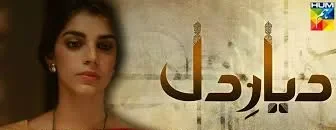
Pacing and Storytelling: Does It Keep You Hooked?
Diyar-e-Dil takes a heavily serialized approach, telling its story over 33 episodes that unravel the complex history and relationships within the family. The pacing is deliberate, with each episode thoughtfully developing the characters’ emotions and backstories. Some might find the pace slower in comparison to other dramas, as it often lingers on the characters’ inner conflicts and interpersonal bonds.
However, this approach works well for a story centered on family, allowing viewers to connect deeply with each character’s journey. Major plot twists, such as the forced marriage of Wali and Faarah and the changing dynamics between Behroze, Suhaib, and Agha Jaan, keep viewers invested. Overall, the storytelling strikes a good balance between emotional depth and plot movement, creating an experience that’s engaging and satisfying for the audience.
Direction and Cinematography: A Visual and Emotional Experience
Under the skilled direction of Haseeb Hassan, Diyar-e-Dil becomes a visual and emotional feast. The breathtaking landscapes of Skardu and Gilgit-Baltistan serve as a stunning backdrop, symbolizing both the beauty and complexity of the family’s story. The cinematography captures the grandeur of the valleys and mountains, making viewers feel as though they’re part of the journey. Hassan’s direction ensures that each scene carries emotional weight, especially in the tense family confrontations and tender moments between Wali and Faarah. His use of long, reflective shots adds to the drama’s contemplative feel, allowing viewers to absorb the emotions and setting fully. The visual elements elevate the drama, making it not only a story but an experience.
Strengths and Weaknesses: What Worked and What Could Have Been Better?
Diyar-e-Dil shines through its exceptional performances, compelling dialogue, and strong thematic depth. The standout performances by Abid Ali, Osman Khalid Butt, and Maya Ali bring the characters’ emotional journeys to life, and the supporting cast adds richness to the story. The dialogues are thoughtful and memorable, capturing the essence of family bonds and the pain of separation. However, the slow pacing might not appeal to all viewers, especially those who prefer fast-moving plots. At times, the storyline’s focus on family conflicts could feel repetitive, especially for those who wish for more dramatic plot developments. Nonetheless, the drama’s strengths far outweigh these minor drawbacks, making it a powerful story about love, loyalty, and reconciliation.
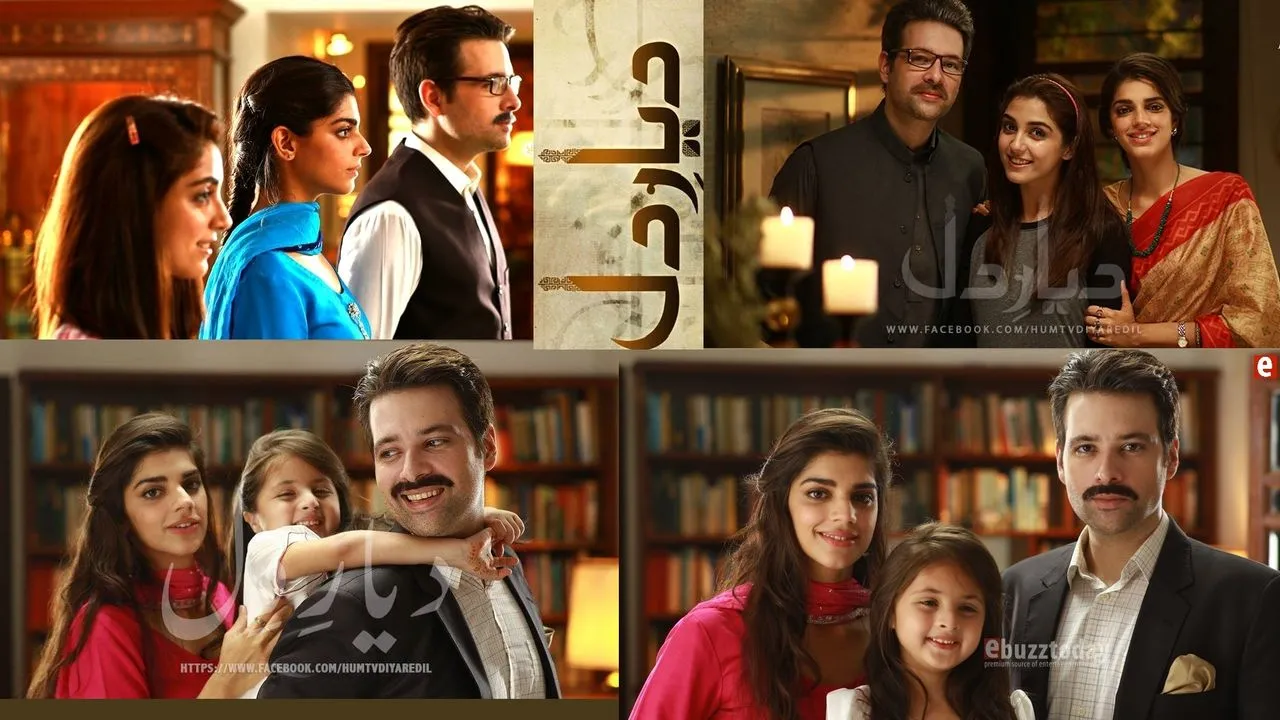
Audience Reception: How Did Viewers Respond to Diyar-e-Dil?
Diyar-e-Dil was widely praised by audiences and became one of Pakistan’s most acclaimed dramas of 2015. Viewers were captivated by its realistic portrayal of family dynamics and the importance of forgiveness. Many praised the chemistry between Osman Khalid Butt and Maya Ali, as well as Abid Ali’s commanding performance as Agha Jaan. The picturesque locations and quality of cinematography also drew admiration. Some viewers, however, felt that the pace could have been faster and that certain scenes lingered longer than necessary. Despite these critiques, the overwhelming response was positive, with audiences commending the drama’s deep emotional impact and beautiful portrayal of Pakistani family values.
Personal Opinions: My Take on Diyar-e-Dil
For me, Diyar-e-Dil is a memorable experience that captures the complexities of family relationships with both honesty and grace. My favorite moments were the quiet, intense scenes between Wali and Faarah, where they moved from resentment to a shared understanding and love. The striking visuals of the valleys and the way each character’s story unfolded kept me emotionally invested. What makes Diyar-e-Dil stand out is its focus on forgiveness and the importance of family, which feels timeless and universally relatable. Despite the slow pace, it’s a journey worth taking, and I’d recommend it to anyone looking for a drama that’s both visually stunning and emotionally enriching.
Final Verdict: Is Diyar-e-Dil Worth Watching?
In a word—absolutely. Diyar-e-Dil stands out for its emotional depth, stunning visuals, and heartfelt exploration of family values, loyalty, and forgiveness. The drama offers something rare: a story that moves at a slower pace but makes every scene meaningful, allowing viewers to feel deeply connected to the characters and their journeys. With stellar performances, especially by Abid Ali, Osman Khalid Butt, and Maya Ali, the cast brings each character’s complexities to life.
While the pacing might feel slow at times, the reward lies in the journey and the powerful moments that stay with you long after the credits roll. If you enjoy family dramas that dig deep into themes of love, honor, and redemption, Diyar-e-Dil is definitely worth your time.
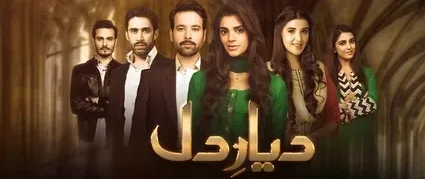
Conclusion: Wrapping Up the Diyar-e-Dil Drama Review
Diyar-e-Dil is more than just a drama; it’s a heartfelt tale of love, sacrifice, and reconciliation that resonates deeply with viewers. The beautiful landscapes of Gilgit-Baltistan, the soulful direction by Haseeb Hassan, and the powerful story by Farhat Ishtiaq all combine to create a memorable viewing experience. The drama reminds us of the strength of family ties and the healing power of forgiveness, making it a story that goes beyond entertainment to touch the heart. For fans of family dramas, Diyar-e-Dil is an unmissable experience that beautifully captures the struggles and triumphs of a family bound by love and honor.

